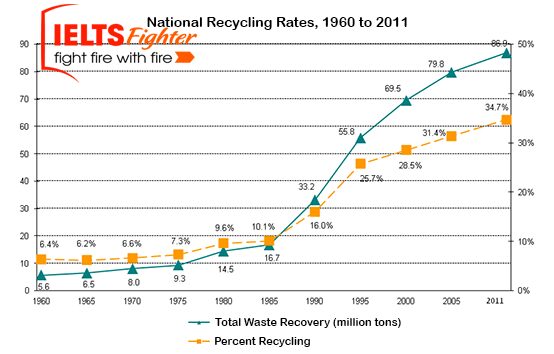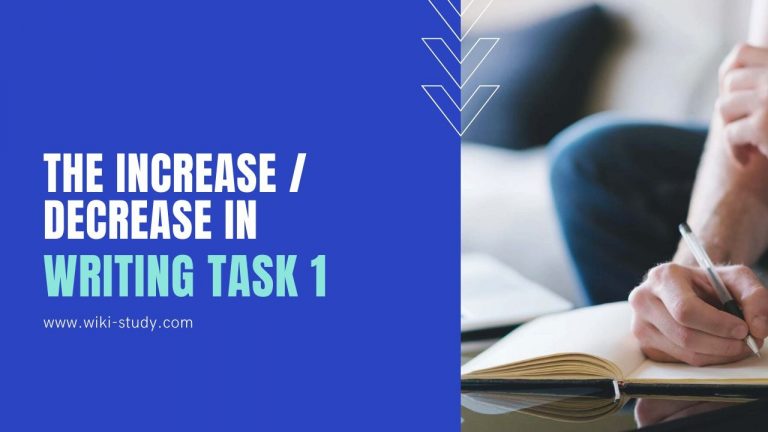Statistically, Task 1 is most likely to fall into a number of graphs that focus on numbers: bar charts, line graphs, pie charts, and tables. In these types of articles, we focus on describing the changing or unchanged of numbers. So one of the most important vocabulary topics for this test is how to say the data increase/decrease
In the most basic form, we have the increase (and decrease) duo. Anyone who takes IELTS must know these two words. However, one more thing that every IELTS test person must know, that is to avoid word duplication. In a 10-15 sentence essay in Task 1, you have to show a wide range of vocabulary, which means you have to know more than one way to say a word. So, do we have other ways to describe the increase and decrease?
1. Increase
Interestingly, the other vocabulary for describing increase/decrease and even “advanced” than increase/decrease are the simple verbs that we come into contact with when we first learn English. Specifically, these are verbs that indicate an upward movement, such as:
Climb (climb the mountain)

.Rise (Sun rises)
 Escalate (The escalator goes up)
Escalate (The escalator goes up)

Or simply go up
The fact that you use a variety of words rather than just using one word will help you easily improve vocabulary points in Task 1. In addition to the words above, sometimes you have to use the words “stronger” to Describe a sharp increase. In English, we also have very “figurative” words to describe this increase:
Shoot like a rocket (verb skyrocket or shoot up)

Soaring like an eagle (verb soar)

2. Reduction
Corresponding to the above rising words, we also have the opposite words with the opposite meaning, for example
Go up => Go down
Rise => Fall
In addition, we also have some other words that are quite memorable and familiar, such as decrease, reduce or drop.
With the sharp decline, in IELTS you will mainly use two words that are also relatively “figurative”: dip (sink) and plunge (dive).

You should pay close attention to the strength of the trends, because vocabulary points will be most appreciated when you use the most accurate words.
Take a look at a chart below:

This chart has a clear uptrend, but there are two types of gains, slow and fast. It can be seen that before 1985, national recycling rates inched up very slowly, but after this year, the increase was very strong.
So we can write:
Overall, total waste recovery increased. From 1985, it skyrocketed.
Other spelling
If you notice, the words given above are all verbs. So, when using these words, we will often write S + V sentences like:
A + increase / decrease / fall / rise / …
This style of writing is completely OK, but in IELTS, besides dividing the correct verb, if we show many different sentence patterns, the grammar of the article will be more appreciated. So is there any way we can describe an increase / decrease without verbs?
The simplest way is to use the nouns of the verbs above. Some of the verbs above have noun forms, and the great thing is that their noun forms are written exactly like the verb form. For example, you have:
Rise => a rise
Fall => a fall
Drop => a drop
But how to use these nouns? Obviously, all sentences in English have verbs. So what verb are we going to use?
Please write the following form:
A + experience + a rise / a fall / a drop …
So, the sentence above that we wrote:
Overall, total waste recovery increased. From 1985, it skyrocketed.
Can be rewritten to:
Overall, total waste recovery experienced an increase.
Please note that not all words can be converted into nouns. You should only use the structure “experience + nouns” with the words: rise / fall / drop and increase / decrease.

